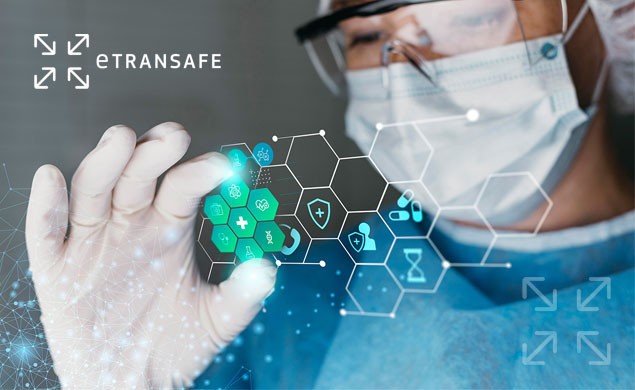GMV’s technology is being used at the ToxHub biomedical data platform to improve the safety of pharmaceutical products

After five years of research, the eTRANSAFE consortium(*) has completed this project with presentation of the revolutionary ToxHub biomedical data platform. With a budget of almost €40 million provided by European funds and the European Federation of Pharmaceutical Industries and Associations, this project has used technology from the multinational technology firm GMV to develop the eTRANSAFE biomedical data platform.
This online platform has been created to provide centralized access to a range of toxicology and ecotoxicology information sources and databases. GMV has contributed to development of this platform as the technical leader for the system. Within the context of this project, a strategy has been developed for integration, sharing, and exploitation of preclinical and clinical data from the various sources involved, all supported by a leading-edge technological architecture.
To understand the scope of the ToxHub biomedical data platform, it is important to remember that assessing the safety of medications is a knowledge-intensive process, which requires advancements not only in the methods and tools used to manage and integrate data, but also in the approaches used for data analysis and predictive modeling. In turn, this requires integration of information from a variety of public and proprietary sources that contain pertinent biomedical knowledge (preclinical studies, clinical trials, evidence from research, etc.).
Prior to the eTRANSAFE project, pharmaceutical companies did not have shared access to information derived from animal research, regarding the toxicity of thousands of compounds. Instead, most of that data remained in private silos and was not generally available. However, thanks to the new ToxHub platform, more efficient safety testing can be performed for pharmaceuticals, by replacing some of the animal research with retrospective analysis technology applied to the cumulative evidence compiled by the pharmaceutical industry.
As explained by Adrián Rodrigo, a Smart Health Business Solutions specialist at GMV, achieving the project’s goal required several steps. “First, we had to apply data governance techniques to organize all of the information that the pharmaceutical companies had available, to make sharing of that data possible. There was a need to generate a sufficient amount of biomedical data so that big data technology and computational approaches could be used to extract conclusions, which is information that could not have been processed without these technologies.”
The project has developed in silico (computer simulation) tools for extracting and viewing data and predicting potential toxicity, with a special emphasis on assessing consistency between preclinical studies and clinical trials and discovering safety biomarkers.
ToxHub uses innovative IT and visual display tools to bring together preclinical and clinical databases in an integrative data infrastructure, with clinical information used to analyze the degree to which the preclinical studies are adequate for predicting effects in humans. The overall aim is to radically improve predictability, feasibility, and reliability for the translational safety assessments performed during the process of developing pharmaceuticals. The direct benefit is the ability to perform more efficient clinical trials, reduce research times, and improve safety for new drugs being developed.
(*) eTRANSAFE is a public-private collaboration that includes 8 academic institutions, 8 small and medium-sized enterprises (SMEs), and 13 pharmaceutical companies. The project’s partners in Spain are the Institut Hospital del Mar d’Investigacions Mèdiques (coordinator), Pompeu Fabra University, GMV Soluciones Globales Internet SAU, MedBioInformatics Solutions SL, Synapse Research Management Partners SL, and the Barcelona Supercomputing Center as part of ELIXIR, and they have participated by leading 4 of the project’s 10 work packages. The pharmaceutical companies Novartis and Bayer AG have acted as the industry coordinators. GMV’s role in the project has been to develop an advanced data integration infrastructure, by applying open standards and policies that are broadly accepted by the parties involved, including regulatory agencies and international organizations.
The direct benefit of ToxHub is that it allows preclinical and clinical databases to be brought together into an integrated data infrastructure, to help increase the efficiency of clinical trials, reduce research times, and achieve better results for toxicity studies
The platform is being used to increase the safety of pharmaceuticals, replacing some of the animal research by applying retrospective analysis technology to the evidence compiled by the pharmaceutical industry
